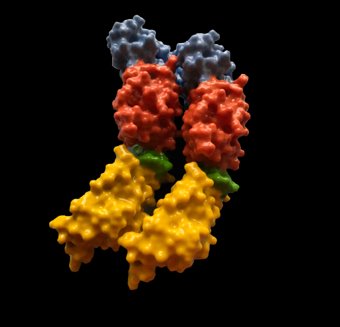Streptococcus pneumoniae
 A particular strength is in the molecular mechanisms underpinning infection caused by Streptococcus pneumoniae (the “pneumococcus”). Pneumonia and meningitis due to this organism remain major killers worldwide and patients with established severe infections are still very difficult to treat, even with antibiotics. Our work has highlighted the importance of a virulence factor – Pneumolysin – released by the pneumococcus in severe and lethal disease, and, furthermore, studies in model systems have shown that interfering with its action is of potential therapeutic value.
A particular strength is in the molecular mechanisms underpinning infection caused by Streptococcus pneumoniae (the “pneumococcus”). Pneumonia and meningitis due to this organism remain major killers worldwide and patients with established severe infections are still very difficult to treat, even with antibiotics. Our work has highlighted the importance of a virulence factor – Pneumolysin – released by the pneumococcus in severe and lethal disease, and, furthermore, studies in model systems have shown that interfering with its action is of potential therapeutic value.
Streptococcus pneumoniae, commonly colonises the upper respiratory tract without symptoms. Despite this, S. pneumoniae is a leading cause of community-acquired pneumonia and meningitis, particularly in children and the elderly. Meningitis is treatable through antibiotic chemotherapy, although treatment efficacy isn't 100%, and survivors often present with severe neurological sequelae.
Pneumococcal meningitis, research at Leicester focuses on the interplay between host and microbial factors which facilitate entry and persistence within the brain and the inflammatory cascade lead to colonisation and disease.